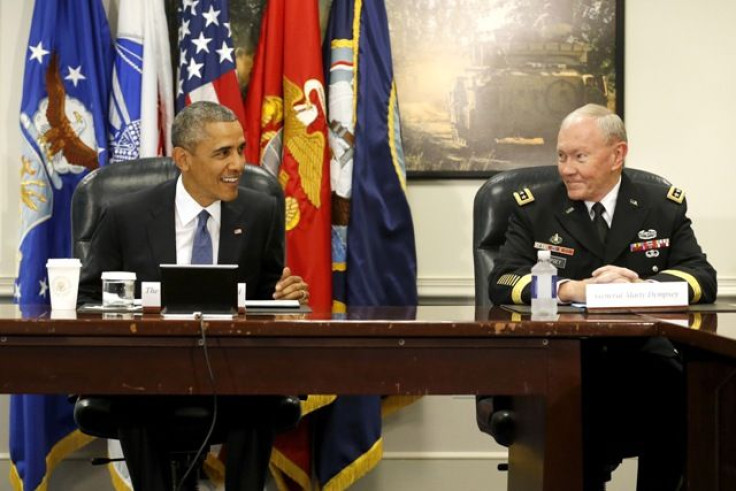US military official expresses concern over rising global threats world overlooks

Military General Martin Dempsey, chairman of the U.S. Joint Chiefs of Staff, warned that the world might turn a blind eye to the suffering of mankind caused by increasing global security threats. He said it would result in a historical shame if the world failed to realise what it needs to be doing to combat the international crisis.
At an event sponsored by the U.S. and U.N. while addressing dozens of ambassadors and military men, General Dempsey said, “The world is at genuine risk of becoming immune to suffering, and if that happens I don’t know where it stops.”
According to the Australian, Dempsey urged the leaders of the world and governments to get back into reality and address the magnitude of problems plaguing the society at large. He said that he has never witnessed such structural transformations taking place within his 41 years of military service and was extremely saddened to see response to escalating global threats. “The complex array of threats and, let’s call it geopolitical jockeying, requires all of us to contend with an unpredictable landscape,” he added.
In today’s world, the security challenges have been all encompassing. It tends to cut across geography, economics, diplomacy and ideology, said Dempsey, who is expected to retire on October 1 after four years. He asked the U.N. peacekeeping operations to keep up its pace with the changing times.
However, he acknowledged that peacekeeping operations have been under continuous pressure from all sides and felt that only a few measures or equipment couldn’t really ensure the security and stability of so many. He expressed concerns over the unsustainable imbalance that has resulted from the rising pressure.
Although the United Nations does not have a standing army yet, Dempsey urged the creation of rapid reaction forces and called for more highly skilled military and international police personnel. He said the governments should make arrangements to provide more sophisticated equipment "or else risk failure of ongoing — and future — U.N. peacekeeping missions."
He also called for greater political and diplomatic backing from all the U.N. member states to ensure the viability of U.N. peacekeeping, which currently deploys more than 120,000 peacekeepers in 16 far-flung operations.
Contact the writer at feedback@ibtimes.com.au, or let us know what you think below.






